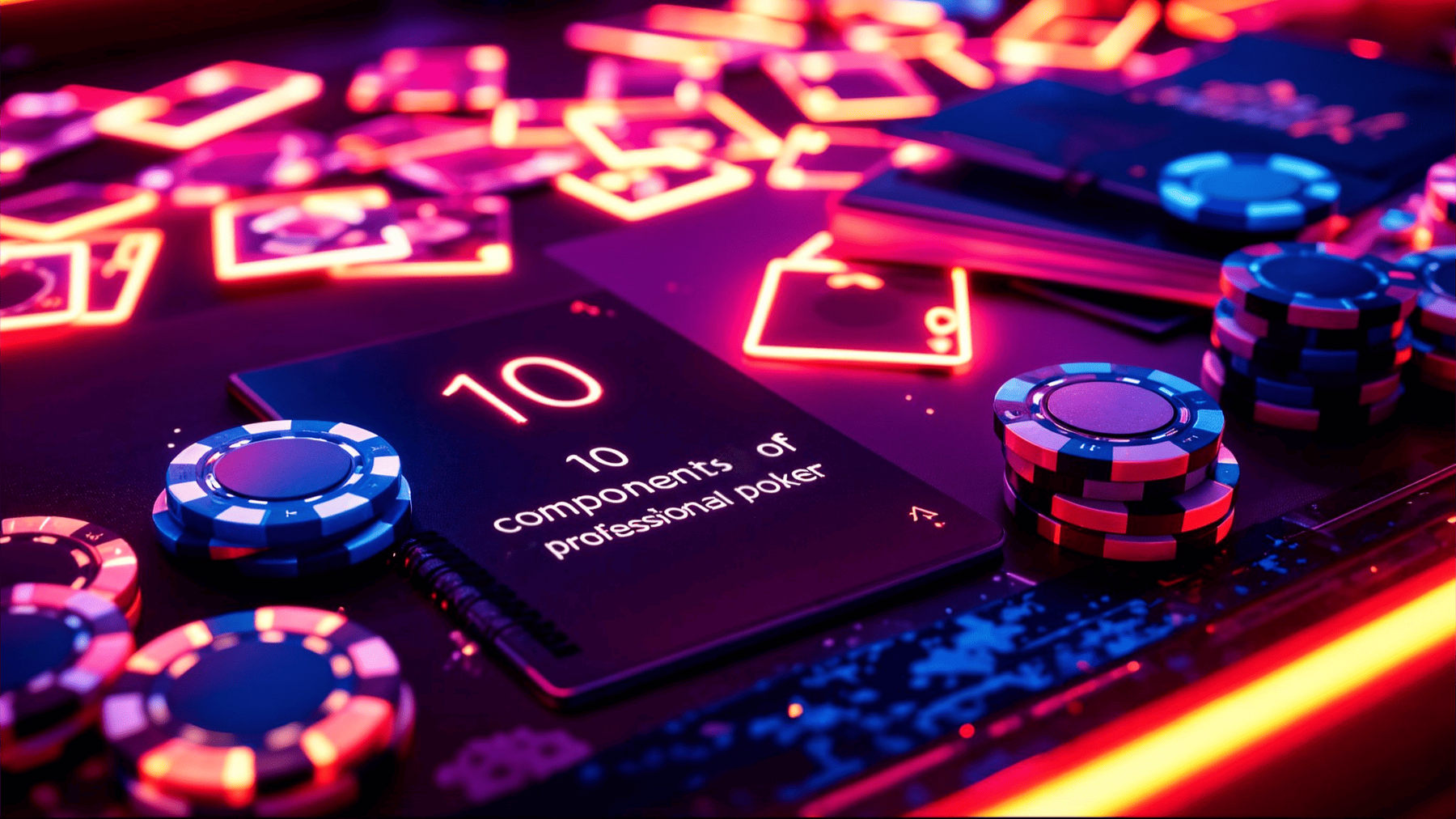Translated with the help of AI. We apologize for any errors and would appreciate your help in correcting them.
Some believe that poker is just mathematics and a struggle of minds, that everything depends solely on strategy. Well, what can I say here... to put it mildly, they are wrong. Poker is very multifaceted, and no one knows all its facets, I think. In this article, I will list just a few of them.
1. Game strategy in poker
This is clear to most players. Strategy is a set of a great many different strategic moves and thoughts aimed at positive expected value at a the long run.
Poker Tactics
Our strategy in the same situation may differ against different opponents. This is called tuning. I would call it a tuning tactic. With only a naked strategy at your disposal, it will be difficult for you to earn enough chips to show good expected value. As you gain experience in the game and improve your ability to competently distinguish the styles of different opponents, you begin to optimize your strategy, in each case starting from your opponent's game.
2. Qualities of character (personal effectiveness)
Character traits influence your success in any profession, and playing poker is no exception.
Many of their developed qualities can accelerate professional growth in poker, but the most important in my opinion are the following:
- Discipline (creating rules and maintaining the regime);
- Competent self-education skills;
- Ability to long concentration (endurance, aging);
- Stable confidence (not increased or underestimated self-esteem);
- Mindfulness (the ability to pay attention to details);
- Learn more about personal effectiveness in this video.
2. Psychology in poker
A very big section of professional poker, you can't write about it briefly. I have devoted a long time to the theoretical study of this section of professionalism and the use of the acquired knowledge in practice. The first article on this topic has already been published for my site - you can read it here. I also released a whole video series with a detailed explanation of most of the components of this section - see here. In the future, the site will periodically publish both my articles on poker psychology and general psychological articles from a professional psychologist, who can also be consulted on my site.
3. Concentration at work
I want to tell you more about this aspect, because there is a very common mistake here. Most players, when they get smaller tables, get bored and dissipate their attention, distracted from the game - this is extremely unproductive! When, in addition to poker, you start watching movies, chatting with friends on social networks, surfing the Internet and so on, that is, doing extraneous things, you are big likely not to notice the clues given by оpponents at the game table.
If you really have nowhere to put your attention, it should be directed to an area adjacent to work:
- Repeat workout notes;
- Repeat game range;
- Disassemble handouts in your base of hands;
- As a last resort, you can watch some training videos (for example, on my website or a u-tube channel).
4. bankroll management
Immediately discard the idea that bankroll management is an outdated concept, this year no one uses it, etc. In professions related to money, it is very important to be able to manage them competently.
You need to make a clear plan for your growth by limits for several limits up, which will be registered both as a bankroll and as the necessary skills that you want to get for growth by a limit higher. Never miss a limit. Even if you have won a big tournament and significantly increased your bankroll, do not rush. First, you need to climb 1 limit higher and play at least 500-1000 tournaments there. Excess money can still be deferred, and it is best to invest in poker education - courses or individual training. This will allow you to gain a better foothold at the limits above and will definitely pay off at the the long run.
5. Reasonable risk
- Risk is an integral part of poker. It's not just about triple barreling into a bluff with a hand that has nothing to do with the board as a bluff. Playing poker periodically requires active and risky actions. Taking risks is important.
- Playing non-bankroll tournaments is nonsense, not a risk. Putting three barrels in a bluff as a bluff at random without understanding the concept and mathematics of a bluff is the same.
- Reasonable risk. Means psychological readiness for heavy emotional results after a strategic decision, if it does not pass, but you are sure that this is a plus for the the long run.
6. Feelings
Mathematically correct actions are 80 percent of the key to your success in poker at a distance the long run. However, poker players also have such a concept as "chuika". It seems that putting on preflop is a positive decision, but the chuika says the opposite, signals that it is better to fold the cards in fold in this particular hand. People who play mechanically will not have such doubts inside. They used to blindly trust mathematics without thinking about their actions.
It will still give its result. But brilliant players can adjust their mathematical strategy with the help of sensations. The stumbling block here is the opposite: most middle players rely too much on feeling, and that feeling is fear. Fear begins to control their decisions, and as a result, players begin to miss a lot of positive actions. Therefore, many simply decide to completely abandon feelings and play math (and often succeed!). But truly brilliant players can give up fear, but still learn to listen to their feelings.
7. Continuous development
In the profession of a tournament poker player, there is no moment when you can say that you have found such a strategy and have reached such a level of skill that allows you to stop in development and just play. The game is constantly changing, the strategies of the field are changing, new concepts, styles and types of games are opening up that require new approaches.
8. Gratitude to the game
Have you noticed such reactions: when you win tournament after tournament, there is only one thought in your head – “I am the champion”. However, when the results go down and important hands play out one by one, you start blaming variance, and twisted RNG, and whatever. But just don't look for reasons in yourself. Try to thank the game for the opportunities it gives you. It's not just about moments of fame. If you lose - this is your lesson, look for reasons both in hands and in other areas. Look for where to grow and be grateful for your development. And for the opportunity to earn in such a beautiful and interesting profession of our time.
9. Think positively
Poker is life. When a person is tuned into a negative, this negative happens to him. When you think positively, good things happen to you. Thoughts are almost material, so set yourself up for positive thinking!




